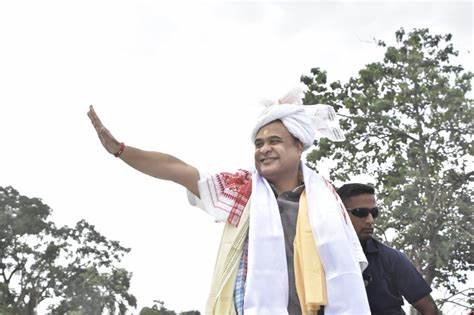The Barak Valley, comprising the districts of Cachar, Karimganj, and Hailakandi in Assam, is set to witness significant development initiatives as ministers representing the region unveiled a series of ambitious plans to address long-standing issues and bolster growth. These announcements, made during a press briefing in Silchar on December 12, 2024, aim to enhance infrastructure, education, healthcare, and overall connectivity in the valley, ensuring that the region benefits from Assam’s broader development agenda.
Bridging the Infrastructure Gap
Recognizing the Barak Valley’s developmental lags compared to other parts of Assam, ministers Kaushik Rai and Krishnendu Paul emphasized infrastructure development as a top priority. A comprehensive road development project is in the pipeline, aiming to improve intra-district connectivity and facilitate trade and travel within the valley.
The ministers highlighted plans to modernize the Silchar bypass, construct new roads linking Karimganj and Hailakandi, and repair existing rural roads that have deteriorated over time. The goal is to create an efficient transport network to boost economic activities and reduce travel time for residents.
Additionally, proposals for enhancing railway infrastructure, including electrification of the Silchar-Guwahati line, have been submitted to the Ministry of Railways. This initiative is expected to improve passenger and freight services, further integrating the valley into the state’s economic framework.
Focus on Education and Healthcare
The Barak Valley ministers also laid out their vision for improving education and healthcare, two critical sectors that have faced neglect in the past. Plans are underway to establish new higher secondary schools in remote areas and upgrade existing schools with modern facilities. The ministers reiterated their commitment to promoting technical and vocational education, which could create more employment opportunities for the youth.
Healthcare infrastructure, another pressing concern, is set to receive a major boost. The ministers announced the expansion of the Silchar Medical College and Hospital, including the addition of advanced diagnostic equipment and specialized departments. Furthermore, efforts are being made to improve rural healthcare by establishing more primary health centers (PHCs) and deploying mobile medical units to underserved areas.
Tapping Into Tourism Potential
The region’s rich cultural and natural heritage was also highlighted as a key area for development. Plans are being drafted to promote the Barak Valley as a tourism destination, leveraging its scenic landscapes, religious sites, and historical landmarks.
Specific projects include the development of eco-tourism at Bhuban Hills in Cachar, the beautification of the Son Beel in Karimganj, and the preservation of heritage sites like the Khaspur ruins. These initiatives aim to attract domestic and international tourists, providing a much-needed boost to the local economy.
Connectivity and Digital Infrastructure
To align with Assam’s digital transformation initiatives, the ministers announced plans to enhance internet connectivity across the Barak Valley. Rural areas will benefit from the rollout of high-speed broadband services, enabling digital access to education, healthcare, and e-governance services.
Improvements in digital infrastructure are also expected to support small businesses and startups, encouraging innovation and entrepreneurship in the region.
Addressing Environmental Concerns
As part of the development agenda, the ministers emphasized the importance of sustainable practices. Afforestation drives and measures to combat riverbank erosion, particularly along the Barak River, will be undertaken. Efforts to mitigate flood risks, a perennial problem in the valley, are also in the works.
Challenges and Community Participation
While these announcements have been met with optimism, challenges such as bureaucratic delays, land acquisition hurdles, and resource constraints remain. The ministers acknowledged these issues and stressed the need for community involvement in implementing the plans.
“We are committed to addressing the grievances of the Barak Valley’s residents and ensuring that development reaches every corner of the region. But for this, we need active participation from all stakeholders, including the public,” stated Kaushik Rai.
The Barak Valley’s development plans mark a significant step toward bridging the gap between this region and the rest of Assam. By focusing on infrastructure, education, healthcare, and tourism, the ministers aim to unlock the valley’s potential and improve the quality of life for its residents.
As these initiatives unfold, it remains essential for the government to maintain transparency and ensure timely execution. If implemented successfully, these plans could pave the way for a brighter and more prosperous future for the Barak Valley, transforming it into a vital contributor to Assam’s growth story.

